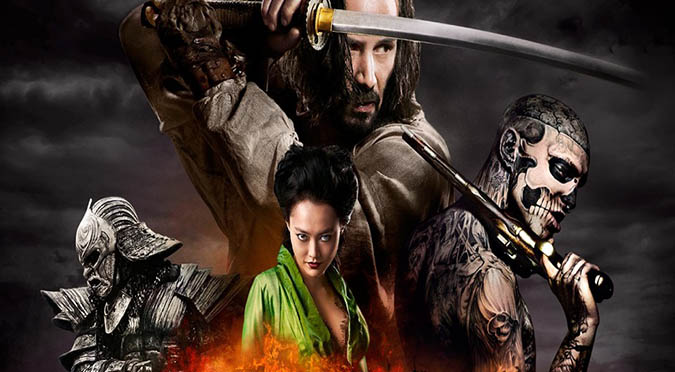
Legend of the 47 Rōnin
March 16, 2017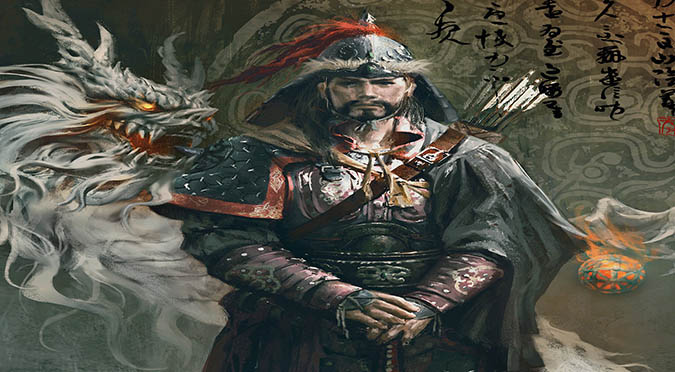
The Wrath of GENGHIS KHAN!
May 15, 2017*Note: This article was originally written in 2016.
CONTENT WARNING: the following may contain some mild language, crude humor, alcohol, and commentary on American politics.
Part Four: Taylor, Fillmore, Pierce, Buchanan
16 – ABRAHAM LINCOLN
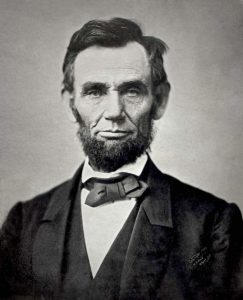 Presidential Years: 1861-1865
Presidential Years: 1861-1865
Political Party: Republican* (National Union)
*Note: The Republican party of today actually has very little in common with Lincoln’s liberal political movement, because both major parties switched platforms in the 1930’s.
Vice President: Hannibal Hamlin / Andrew Johnson
Ran Against: John C. Breckinridge, John Bell and Stephen A. Douglas (1st term) / George B. McClellan (2nd term)
First Lady: Mary Todd Lincoln
Quote: “My great concern is not whether you have failed, but whether you are content with your failure.”
Best known for: Being Abraham Lincoln!
Random Fact: Failed at nearly everything prior to becoming elected the President of the United States
Pros:
- The Emancipation Proclamation
- The Gettysburg Address
- Won the Civil War
- Preserved the union
- Rallying for the 13th Amendment: Officially ending the legality of slavery.
- Often considered one of the greatest leaders in American history
- The first American politician to suggest that women should have the right to vote
- Self made man
Cons:
- Instituting martial law
- Suspended the writ of Habeas Corpus
- Arrested thousands of anti-war protesters
- Failed at nearly everything prior to becoming President
- Nominated Andrew Johnson as his running mate for his second term…
Bio: “Honest Abe”, “the Rail-splitter”, “The Great Emancipator”.
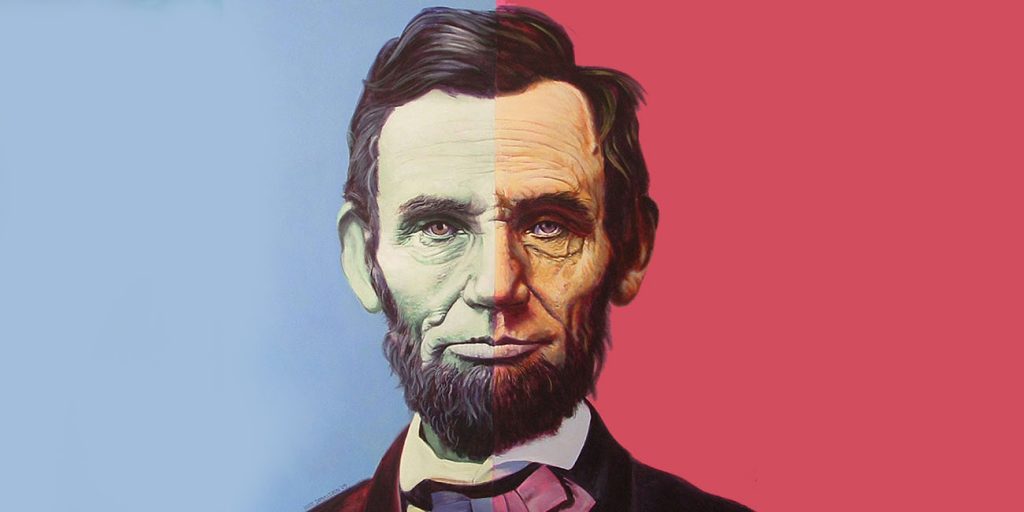
Abraham Lincoln was many things to many people and still is. He is probably the most iconic President in American history (for good reason), and is without a doubt one of the most quotable icons in human history, but he was also a far more complex individual than the memorials and shrines would have you believe. That said, most Americans today would probably agree that Lincoln was one of the best examples of what it is to be a great President.
Abe Lincoln was born in a log cabin on February 12th, 1809, in Kentucky. Little Lincoln grew up on the frontier in Indiana, chopping fire wood and helping with the family farm. While Lincoln didn’t mind the physical labor, he often would rather spend his time reading or writing. (word)
Lincoln’s life was plagued by tragedy from early on. His mother died when he was only 9 years old, and years later, his fiancee, Ann Rutledge, died unexpectedly in 1835. Despite his hardships, Abe was not the type to call it quits.
At six-foot, four, Lincoln was a towering figure even by today’s standards. Lincoln wasn’t just huge either, he was also super ripped from decades of wielding an ax and wrestling. Yes, wrestling.
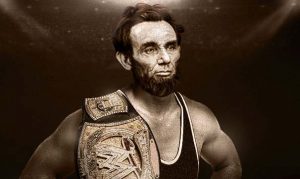
Do you smell what Honest Abe is cookin?!
In fact, Lincoln gained quite a reputation for his exploits in and out of the ring. One particular story recounts that in his 20’s, Lincoln challenged a local bully to a match. This opponent was Jack Armstrong, the leader of a gang called the Clary’s Groves Boys, who had a reputation for shoving random strangers into barrels and rolling them down a hill. Abe wasn’t having any of it.
Lincoln challenged Jack to a wrestling match. The two shook hands and attempted to hurl the other one to the ground. They were evenly matched. As the two struggled, Jack cheated by attempting to trip Lincoln. Lincoln hulked out, grabbed Jack by the throat and lifted him over his head before throwing him across the room. Jack’s thugs swarmed Lincoln, but before he could pummel the rest of the crew, Jack called off his boys saying that he’d been bested fairly. The two shook hands and became best friends.
Another time, during one of his speeches, he *physically* tossed a heckler out for interrupting him!
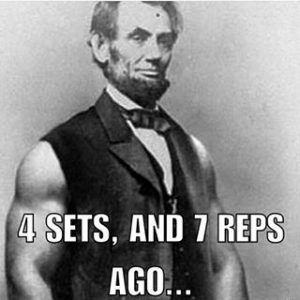 Funny thing is, prior to becoming President, (except for being a tough as nails badass) Lincoln failed at basically everything else. He lost at least 8 nominations, elections and re-elections, in addition to losing two jobs, and inheriting massive debt from a failed business venture. Fortunately, he never once gave up.
Funny thing is, prior to becoming President, (except for being a tough as nails badass) Lincoln failed at basically everything else. He lost at least 8 nominations, elections and re-elections, in addition to losing two jobs, and inheriting massive debt from a failed business venture. Fortunately, he never once gave up.
In 1836, he became a self-taught lawyer. He made a name for himself with the Kansas-Nebraska Act. As a Whig Party leader he was elected to the Illinois House of Representatives and later the US House of Representatives. It was there that he made his stance against slavery known, as a moral issue rather than a legal one, with his famous statement: “a house divided against itself cannot stand.” This abolitionist message propelled Lincoln to become the voice of the newly formed Republican party, eventually landing him the Presidency itself.
Immediately after Abraham Lincoln’s election on November 6th, 1860, the state of South Carolina seceded from the Union. The separatists formed a new constitution, nearly identical to the United States, except for one major difference: it left out the part where it said “All Men Are Created Equal” and made sure that the legality of slavery was built into it. Six other states followed (Mississippi, Florida, Alabama, Georgia, Louisiana, and Texas) before Lincoln was even inaugurated, on March 4th, 1861. Together, they formed the Confederate States of America, under “President” Jefferson Davis.
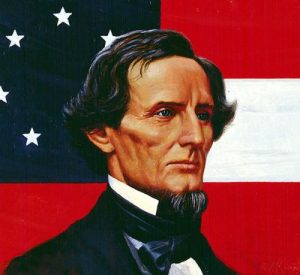
Jefferson Davis – Traitor in Chief
Following James Buchanan’s disastrous Presidency, Lincoln inherited a White House in ruins. Washington itself seemed to be crumbling around him, but Abe never lost his cool. After the events at Fort Sumter, Lincoln’s call to arms united the Northern states. The Civil War had begun. (click here for more on that)
In 1863, President Lincoln gave the Emancipation Proclamation, which declared slavery unlawful and spent the last years of his life rallying for the ratification of the 13th Amendment. While the Emancipation Proclamation did not end slavery immediately, it was the first step in the right direction.
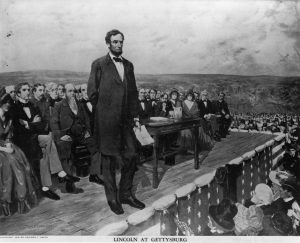 In his famous Gettysburg address, Lincoln stated, “Four score and seven years ago, our fathers brought forth on this continent a new nation: conceived in liberty, and dedicated to the proposition that all men are created equal. Now we are engaged in a great civil war. . .testing whether that nation, or any nation so conceived and so dedicated. . . can long endure. We are met on a great battlefield of that war […] we here highly resolve that these dead shall not have died in vain. . . that this nation, under God, shall have a new birth of freedom. . . and that government of the people. . .by the people. . .for the people. . . shall not perish from the earth.”
In his famous Gettysburg address, Lincoln stated, “Four score and seven years ago, our fathers brought forth on this continent a new nation: conceived in liberty, and dedicated to the proposition that all men are created equal. Now we are engaged in a great civil war. . .testing whether that nation, or any nation so conceived and so dedicated. . . can long endure. We are met on a great battlefield of that war […] we here highly resolve that these dead shall not have died in vain. . . that this nation, under God, shall have a new birth of freedom. . . and that government of the people. . .by the people. . .for the people. . . shall not perish from the earth.”
While Lincoln did a great many positive things during his time in office, he also did a number of… not-so-great things, including but not limited to: Instituting martial law, suspending the writ of Habeas Corpus, and arresting somewhere between 10 and 15,000 civilians without a trial! While this may seem completely unconstitutional (and it kinda is), it should be noted that Article I, Section 9 states that it can be overwritten during a rebellion or invasion in the interest of public safety. (And all that’s not even mentioning his brief stint as a vampire hunter.)
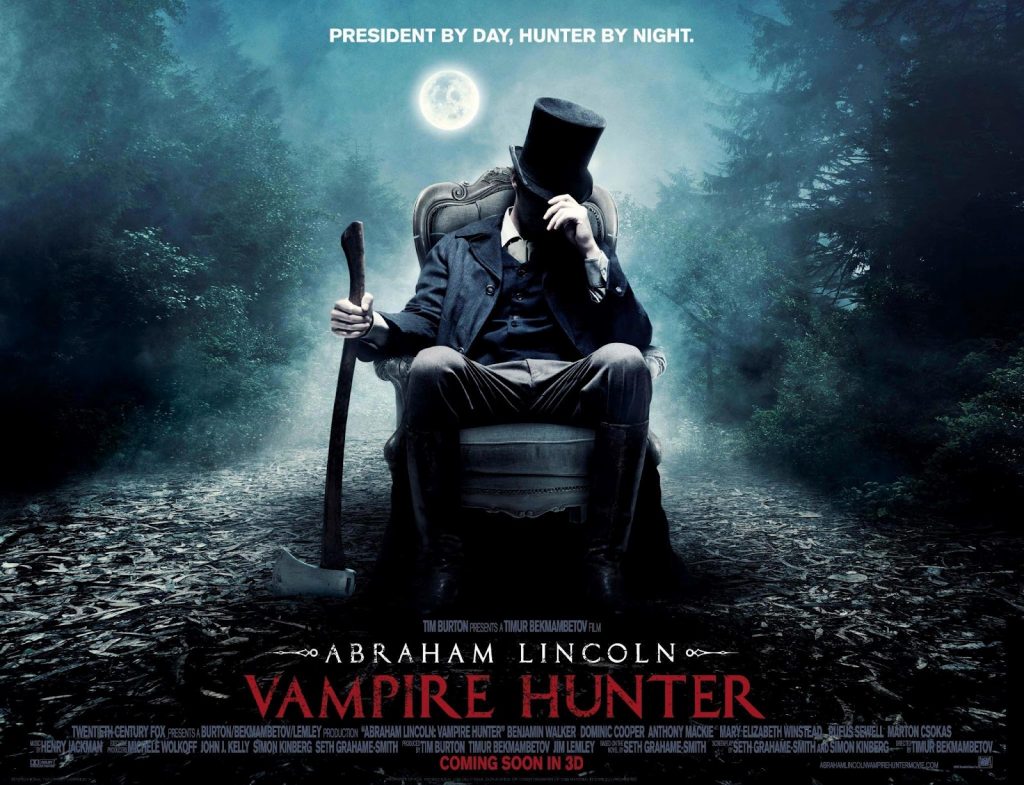
Just so we’re all clear, Lincoln did not start the Civil War… though he sure as hell ended it!
Ultimately, Lincoln’s actions mended the fractured nation back together, mostly, but the cost of the Civil War was catastrophic on both sides, with over 785,000 dead (by far the bloodiest war fought on American soil). Unfortunately, before Lincoln could begin the healing process with his plans for reconstruction, he was assassinated at Ford’s theater by a disgruntled Confederate conspirator named John Wilkes Booth, on April 14th, 1865 – a mere five days after General Lee surrendered to Ulysses S. Grant.
Unfortunately, Lincoln’s VP at the time was so bad that he would go down in history as the first President to be impeached. Still, over a century later, Lincoln’s legacy lives on…
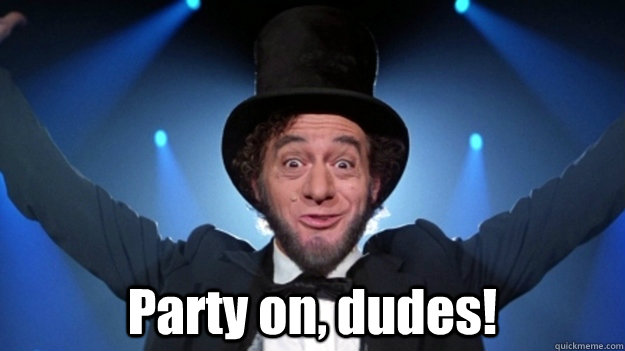
17 – ANDREW JOHNSON
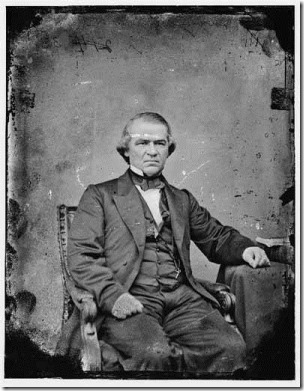 Presidential Years: 1865-1869
Presidential Years: 1865-1869
Political Party: Republican (National Union) / Democrat
Vice President: <Vacant>
Ran Against: <N/A>
First Lady: Eliza McCardle Johnson
Quote: “Mr. Jefferson meant the white race.”
Best known for: Nearly ruining Lincoln’s legacy and being the reason reconstruction went so poorly.
Random Fact: First President to be impeached.
Pros:
- Worked his way up from poverty
- Was a champion for the “common folk”
Cons:
- Anti-abolitionist
- Alcoholic
- Extremely racist
- Mishandling of reconstruction
- Attempted to veto the Civil Rights Act of 1866
- Alienated both the people and Congress
- First President to be impeached
Bio: The fact that Lincoln is bookmarked by two of the worst Presidents in American history, probably makes him look even better. Lincoln spent his Presidency fixing the disaster that Buchanan left him, only to have Andrew Johnson come in and start breaking things all over again. The country was still on shaky ground following the devastating repercussions of the Civil War. More than ever before, the US needed a President it could depend on to do what was best for all Americans.
That President was not Andrew Johnson.
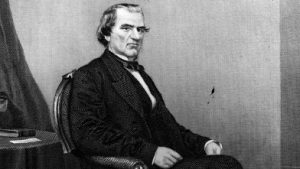
Andrew Johnson was basically the exact opposite of Lincoln. He was a Jacksonian Democrat who was basically on the side of the Confederates except for the whole breaking up the country thing. The only reason the Republicans nominated him was because they figured he would gain some sympathy from the Southerners into working together.
It didn’t work.
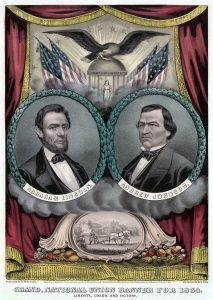 Johnson grew up in abject poverty. He ran away as a kid and started up his own business as a tailor. He got into politics to fight for the little guy who was always getting screwed over. Throughout his career he championed a homestead bill that would offer free farmland to poor Americans, during his time in the Senate. During the Civil War, Johnson was appointed as a military governor of Tennessee for the Union.
Johnson grew up in abject poverty. He ran away as a kid and started up his own business as a tailor. He got into politics to fight for the little guy who was always getting screwed over. Throughout his career he championed a homestead bill that would offer free farmland to poor Americans, during his time in the Senate. During the Civil War, Johnson was appointed as a military governor of Tennessee for the Union.
Following the war, Johnson was elected Vice President, for Lincoln’s second term under the banner of the National Union party. On inauguration day, March 4th, 1865, Andrew Johnson stumbled in with an epic hangover.
The acceptance speech he gave was apparently so bad that Senator Chandler called it “a drunken foolish speech” in which Johnson’s incoherent rambling went way over time and ended with shouting, “I kiss this book, in the face of my nation, the United States!” before proceeding to make out with the Bible.
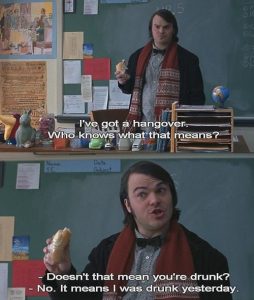
Prior to his speech, he reportedly approached Vice President Hamlin and asked for some whiskey. Hamlin handed him a bottle, which Johnson then proceeded to chug before saying, “I need all the strength for the occasion I can have.” Then he was made the new VP. Lincoln and Johnson met for the first time on April 14th, 1865.
Later that night, Lincoln was murdered by John Wilkes Booth…
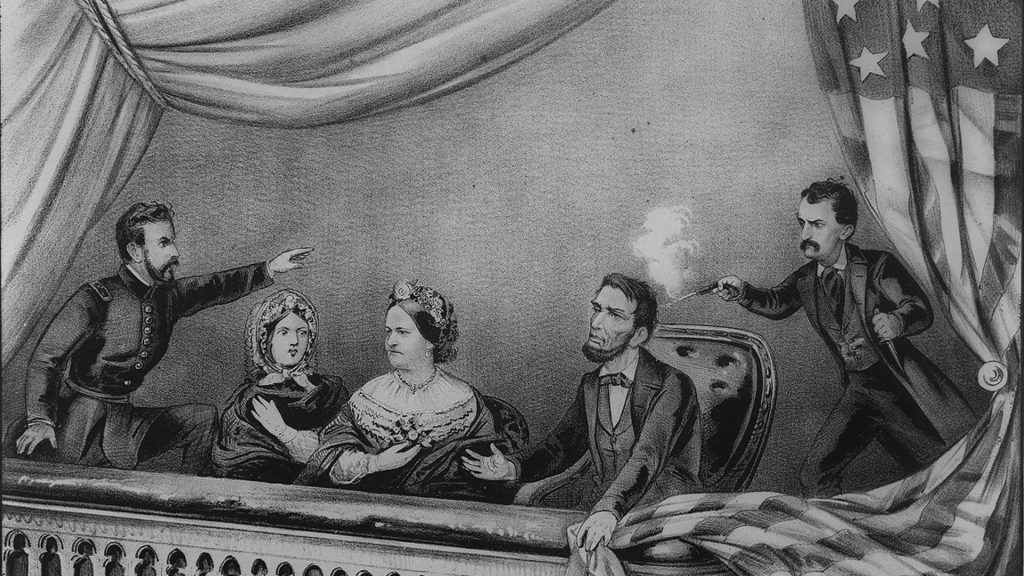
The very next morning, Andrew Johnson was sworn in as the President of the United States.
He was reportedly drunk at the time. (I guess it was Five O’Clock somewhere.)
President Johnson ordered the execution of the Confederate conspirators to set an example. He then placed a $100,000 bounty on Jefferson Davis’s head. Soon after however, Johnson began to pardon all Confederates who swore allegiance to the Union, except for prominent leaders and those of wealth and power, who had to obtain a special Presidential pardon.
Lincoln may have freed the slaves, but it was becoming very clear that Johnson could care less about the rights of the newly freed African Americans. Andrew Johnson was once quoted as saying, “slavery is essential to the preservation of the union.” They may have been technically “free”, but they were now third class citizens, enslaved by a number of social constructs and crippling poverty, with very little mobility.
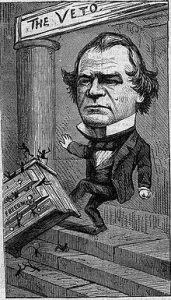 When Congress met in 1865, reconstruction was well underway. While the institution of slavery was slowly being done away with, a series of “black codes” began to crop up in it’s place, among the southern states. These unconstitutional laws allowed farmers to keep African Americans as indentured laborers in contracts that they could not quit. There were also laws put in place that allowed law enforcement to arrest them for no reason and then rent them out for labor. Unfortunately, Johnson took the side of the wealthy plantation owners. When the Civil Rights Act of 1866 came to his desk, President Johnson attempted to veto it! Thankfully, Congress overrode it.
When Congress met in 1865, reconstruction was well underway. While the institution of slavery was slowly being done away with, a series of “black codes” began to crop up in it’s place, among the southern states. These unconstitutional laws allowed farmers to keep African Americans as indentured laborers in contracts that they could not quit. There were also laws put in place that allowed law enforcement to arrest them for no reason and then rent them out for labor. Unfortunately, Johnson took the side of the wealthy plantation owners. When the Civil Rights Act of 1866 came to his desk, President Johnson attempted to veto it! Thankfully, Congress overrode it.
The Civil Rights Act of 1866 established (for the first time in American history) that ALL American citizens were equally protected by the law and from discrimination. Congress then ratified the Fourteenth Amendment which forbade any state of depriving one of life, liberty, or property, without due process. However, many of the southern states continued to refuse to accept former slaves as equals. By opposing equity for African Americans, Andrew Johnson set in motion a vicious cycle of racial injustice and animosity that is still being felt today. All in all, Andrew Johnson was a slime ball.
One time, on February 22nd, 1866, Andrew Johnson addressed a crowd at the White House in honor of George Washington’s birthday. Johnson took the opportunity to talk about himself instead, mentioning himself over 200 times during the cringe-worthy speech. ‘The Richmond Whig’ once called Johnson, “The vilest radical and most unscrupulous demagogue in the Union.”
*Note from 2020: this used to be shocking. ^
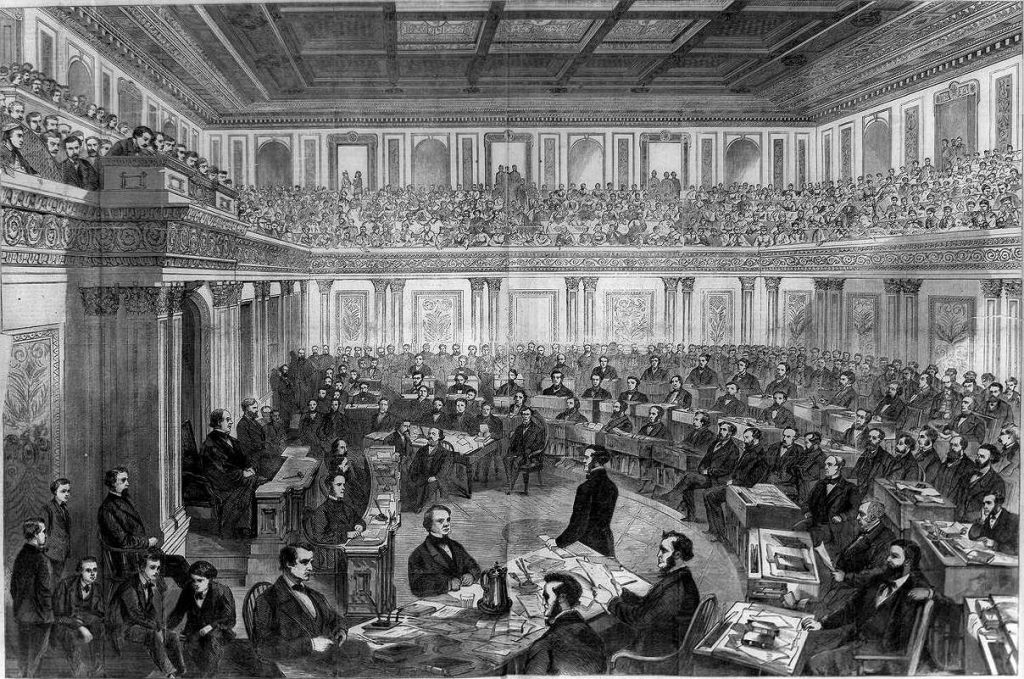
Before long, Andrew Johnson was making enemies with politicians on both sides of the aisle. In 1867, the ‘Radical’ Republicans began to pass laws that limited the power of the President. President Johnson bullishly violated the Tenure of Office Act by unceremoniously dismissing Edwin M. Stanton, the Secretary of War. In 1868 Johnson became the first US President to be impeached. He was tried under 11 articles of impeachment, but was acquitted by only one vote…
*Note from 2020: Andrew Johnson was the first of three Presidents to be impeached, followed by Bill Clinton in 1998, and Donald J. Trump in 2019 – although none of them were ultimately removed from office for one reason, or another. (Richard Nixon wasn’t technically impeached, because he resigned before he could be and later avoided jail time because he was pardoned by Gerald Ford.)
18 – ULYSSES S. GRANT
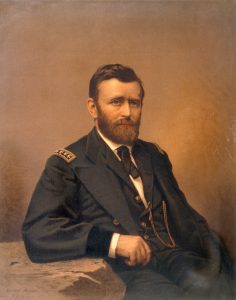 Presidential Years: 1869-1877
Presidential Years: 1869-1877
Political Party: Republican
Vice President: Schuyler Colfax / Henry Wilson / Vacant
Ran Against: Horatio Seymour (1st term) / Various (2nd term)
First Lady: Julia Dent
Quote: “My failures have been errors of judgement, not of intent.”
Best known for: General during the American Civil War
Random Fact: Was drunk during most of the Civil War
Pros:
- Hero of the Civil War
- Ratification of the 15th Amendment
- Established the National Parks
- Extremely honest
- Restored stability to a fractured country
Cons:
- Notorious drunk
- Politically inexperienced as President
- Wasn’t great at appointing key positions
- His Presidency was plagued by scandals
- The Great Sioux War of 1876
- Failed attempt to annex Santo Domingo
- Somewhat anti-Semitic?
Bio: Union General of the Civil War. National hero. Ridiculously drunk… No matter how you slice it, there’s no doubt, Ulysses S. Grant was one complicated individual (who liked to drink).
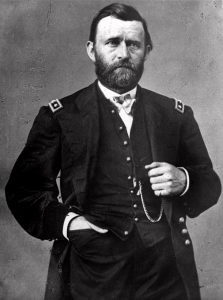 Born as Hiram Ulysses Grant, in Ohio, Grant first changed his name at 17, when he applied to the military academy at West Point and they got his name wrong, so he just rolled with it. Nicknamed ‘Useless’ by his ‘friends’, Ulysses never really got along with his father, so decided to not take up the family business and joined up with Uncle Sam instead.
Born as Hiram Ulysses Grant, in Ohio, Grant first changed his name at 17, when he applied to the military academy at West Point and they got his name wrong, so he just rolled with it. Nicknamed ‘Useless’ by his ‘friends’, Ulysses never really got along with his father, so decided to not take up the family business and joined up with Uncle Sam instead.
At one point, Grant was forced to leave behind his wife and child when he was deployed to garrison duty in the Pacific Northwest. It was there that he took up a new hobby: binge drinking. Eventually his alcoholism got so bad that he was forced to resign. He took up a number of odd jobs, from farming to real estate, and failing miserably at each opportunity. Then came the Civil War…
Ulysses S. Grant answered Lincoln’s call to arms and reenlisted as a Union soldier. This time, he found his purpose. He was soon promoted to brigadier general and found himself commanding 20,000 strong. In 1862, Grant and his men stormed Fort Henry where he famously said, “No terms, except an unconditional and immediate surrender can be accepted.”
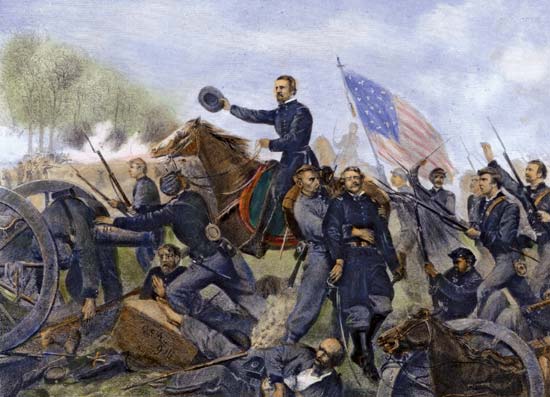
Grant once again proved himself at the Battle of Shiloh where they pushed back the Confederate forces and his tactics prevailed again during the 47 day siege of Vicksburg. Grant wasn’t just a great general, he changed the game. On April 8th, 1865, General Robert E. Lee surrendered at the Appomattox Court House. In no small thanks to Grant. When President Johnson wanted to charge General Lee with treason, Grant’s word alone pardoned him.
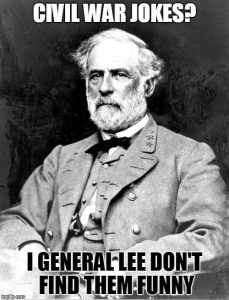
Then in 1868, the Republican party nominated him to be the next President of the United States.
Despite winning the election, twice, President Grant’s time in the White House was much less successful than his time on the battlefield. Grant’s cabinet was marred by scandals. When Ulysses saw an uptick in southern hate crimes towards African Americans by the KKK, instead of going after the Klansmen, he attempted to annex Santo Domingo as a colony for freed slaves. (Congress voted against it) And then there’s the Great Sioux War between the US government and the Great Plains Indians over control of the Black Hills – which ended in Native Americans once again being deported from their own land.
Still, Grant did manage to pull the country together in a way that Johnson had completely failed to. He established the National Parks and ratified the 15th Amendment. The Fifteenth Amendment prohibits state or federal government from denying any man, regardless of race, from the right to vote (unfortunately, women didn’t count until 1920 with the 19th Amendment).
This one time, President Grant was arrested for speeding! The police impounded his carriage, charged him a fine and walked him back to the White House. Following his time in the Oval Office, Grant fell into bankruptcy and later (drunkenly) recounted his memoirs to Mark Twain, in which he said, “I never wanted to get out of a place as much as I did to get out of the Presidency.”
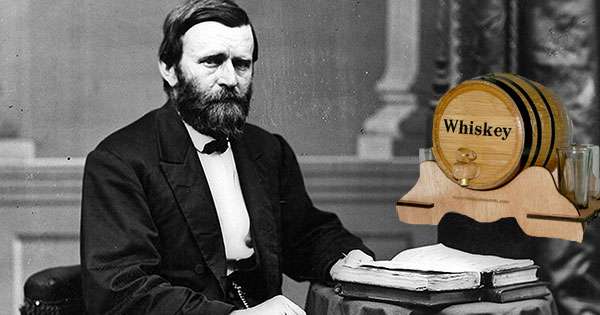
Read more about Ulysses S. Grant (and his rampant alcoholism) here!
To Be Continued… in Part 6: Hayes, Garfield, Arthur, and Cleveland!
Erik Slader
Thanks for reading! If you’re a fan of the blog, be sure to listen to the Epik Fails of History podcast and check out my all new “EPIC FAILS” book series – available now wherever books are sold! “EPIC FAILS: Not-So-Great Presidents” hits shelves on January 15th, 2019.

CIVIL WAR: Clash of the Ironclads!
Sources:
“How to Fight Presidents” by Daniel O’Brien
“Failure of the Presidents” by Thomas J. Craughwell
“Heroes of History” by Winston Churchill
“The World Book of America’s Presidents” by Dale W. Jacobs
“The Fiery Trial: Abraham Lincoln and American Slavery” by Eric Foner
“Lincoln” (2012) – Directed by Steven Spielberg, starring Daniel Day Lewis
American Presidents: Life Portraits (C-SPAN)
Mini-Biography (Bio)
http://www.abrahamlincolnonline.org/lincoln/education/failures.htm
http://www.gettysburg.com/bog/address.htm
https://en.wikipedia.org/wiki/List_of_Presidents_of_the_United_States
http://www.presidentsusa.net/statesunion.html
http://americanhistory.about.com/od/civilwarmenu/a/secession_order.htm
http://www.biography.com/people/andrew-johnson-9355722
http://www.biography.com/people/ulysses-s-grant-9318285

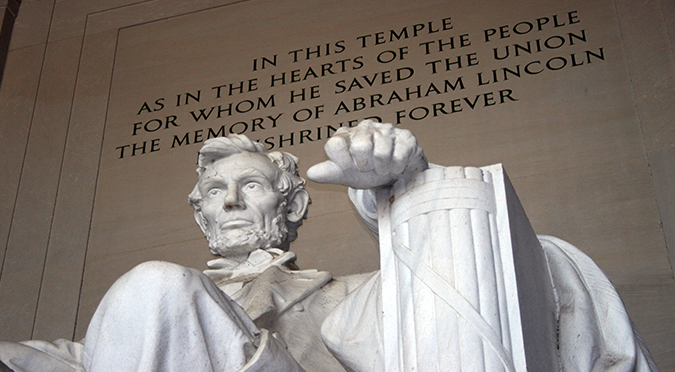
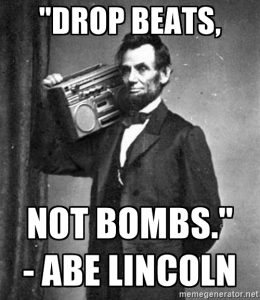 Top 10 Historical Drunks!
Top 10 Historical Drunks!


9 Comments
When was this article published?
I think this was in 2015? 2016? I’ve been planning on going through and re-editing all my old articles, just haven’t been able to take the time just yet. :-/
[…] his place in history as a war hero in his victory against Robert E. Lee and the Confederates. Abraham Lincoln even said, “I wish some of you would tell me the brand of whiskey that Grant drinks. I would […]
When will you continue with the pros & cons of our more recent presidents?
I want to at some point. The more recent Presidents are tricky though… for a few reasons lol
Great review although my criticism is that you forgot to include that “John Wilkes Booth claimed he wanted to save the Confederacy, but on April 26, 1865, he was murdered by Boston Corbett before he could be arrested and convicted and before he could tell his story. His assassination of Lincoln was part of a conspiracy to throw the Reunited States into chaos. There were also unanswered questions regarding to the Lincoln Assassination.”
Thank you! Yeah, it’s pretty crazy when you really dive into it.
I also forgot to mention that you should have re wrote “John Tyler and Richard Nixon weren’t technically impeached because the impeachment attempt on Tyler failed because they weren’t not enough majority of votes to impeach Tyler and Nixon resigned before going to jail because he was later pardoned by Gerald Ford.”
So there, Nixon is not the only president to face an unsuccessful impeachment attempt because John Tyler actually started this distinction by becoming the first president to face an unsuccessful impeachment attempt.
Dude, I hope you continue the series real soon. Looking forward to it! My history on Presidents have felt indifferent until I’ve saw your articles. I hope you do sometime in the near future. 🙂